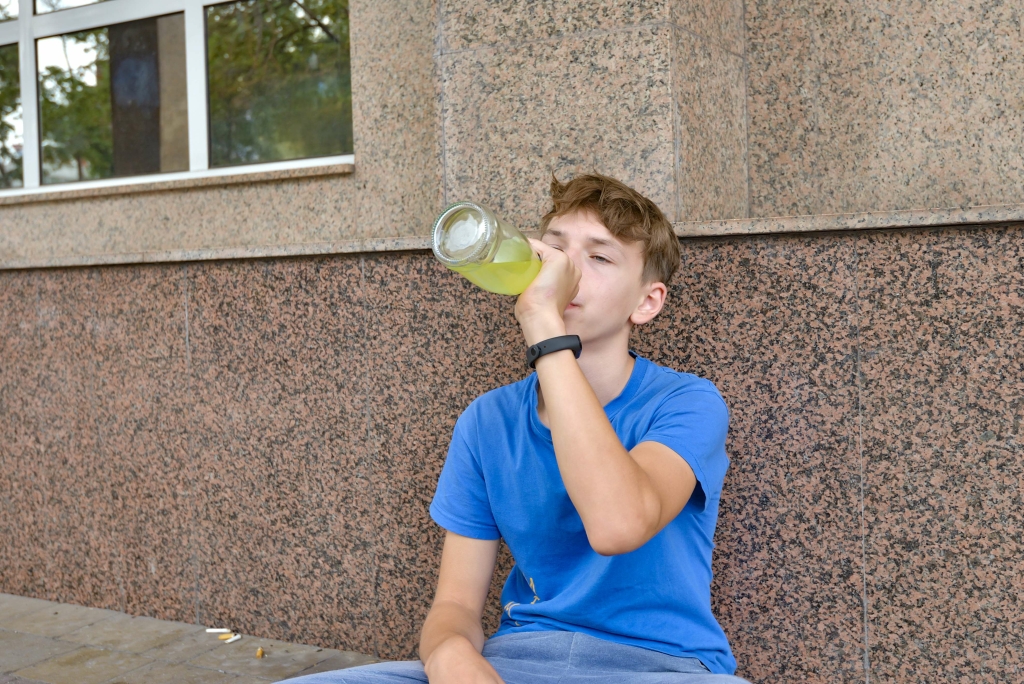Content
The diagnosis of alcohol use disorder is generally made by reviewing the person’s behavior except when the person has symptoms of withdrawal or damage to organs that is clearly the result of alcohol consumption. It can lead to liver disease, pancreatitis, some forms of cancer, brain damage, serious memory loss, and high blood pressure. It also makes someone more likely sober house to die in a car wreck or from murder or suicide. And any alcohol abuse raises the odds of domestic violence, child abuse and neglect, and fetal alcohol syndrome. The first stage in alcohol addiction recovery is detoxification. This phase should be completed with the help of medical professionals due to the potential for serious, uncomfortable withdrawal symptoms.
- Having a “drinking problem” is different from having an alcohol addiction due to one main delineating factor, the ability to take a step back and quit.
- You may be prescribed medicines along with counseling and behavioral therapy to help you quit.
- Talk with your provider if you or someone you know may have an alcohol problem.
These individuals may be classified as “almost alcoholic.” They are still able to take a step back and assess their situation and make proper adjustments. Alcoholism is the physical dependence on alcohol to the extent that stopping alcohol use would bring on withdrawal symptoms. In popular and therapeutic parlance, the term may also be used to refer to ingrained drinking habits that cause health or social problems. Treatment requires first ending the physical dependence and then making lifestyle changes that help the individual avoid relapse. Alcohol dependence can have many serious effects on the brain, liver, and other organs of the body, some of which can lead to death. A BAC of 0.09% to 0.25% causes lethargy, sedation, balance problems and blurred vision.
Is alcohol use disorder a disease?
Alcohol use disorder includes a level of drinking that’s sometimes called alcoholism. Binge drinking and heavy alcohol use can increase an individual’s risk of alcohol use disorder. Drinking may mask depression or other mood or anxiety disorders. If you have a mood disorder, it may become more noticeable when you stop drinking. Your provider will treat any mental disorders in addition to your alcohol treatment. Depending on how much and how long you have been drinking, you may be at risk for alcohol withdrawal.

An increasing number of rehab facilities are specializing in alcohol addiction programs and therapies. Alcoholism is a complex, many-sided phenomenon, and its many formal definitions vary according to the point of view of the definer. A simplistic definition calls alcoholism a disease caused by chronic, compulsive drinking. A purely pharmacological-physiological definition of alcoholism classifies it as a drug addiction that requires imbibing increasing doses to produce desired effects and that causes a withdrawal syndrome when drinking is stopped. This definition is inadequate, however, because alcoholics, unlike other drug addicts, do not always need ever-increasing doses of alcohol. Opium addicts, on the other hand, become so adapted to the drug that they can survive more than a hundred times the normal lethal dose, but the increased amounts to which alcoholics become adapted are rarely above the normal single lethal dose.
Certain people should avoid alcohol completely, including those who:
A causal relationship has been established between harmful drinking and incidence or outcomes of infectious diseases such as tuberculosis and HIV. Reach out to a treatment provider for free today for immediate assistance. Excessive alcohol use takes a toll on the liver and can lead to fatty liver disease (steatosis), hepatitis, fibrosis, and cirrhosis. In some people, the initial reaction may feel like an increase in energy. But as you continue to drink, you become drowsy and have less control over your actions. Alcohol use that turns into a use disorder develops in stages.

Substances turned on me and they were no longer fun nor a solution. My addiction put me in risky situations… Quitting was out of question, I was powerless. These examples are programmatically compiled from various online sources to illustrate current usage of the word ‘alcoholism.’ Any opinions expressed in the examples do not represent those of Merriam-Webster or its editors. This is available from a range of support groups and professional services.
Symptoms
One drink is defined as 12 ounces or 360 milliliters (mL) of beer (5% alcohol content), 5 ounces or 150 mL of wine (12% alcohol content), or a 1.5-ounce or 45-mL shot of liquor (80 proof, or 40% alcohol content). During this time, you’ll confront your loved one about the effects of addiction and ask them to seek professional help. It is a multifaceted and complex disease, so while someone may inherit a predisposition to the disorder, genes do not fully determine a person’s outcome. According to the DSM-5, alcoholism is believed to have a strong heritable component, with between 40–60% of the variance of risk being attributable to genetic factors.2 However, there is no cut-and-dry formula to explain alcoholism. For men, this low-risk range is defined as no more than 4 drinks on a given day and no more than 14 per week.
The context of drinking plays an important role in the occurrence of alcohol-related harm, particularly as a result of alcohol intoxication. Alcohol consumption can have an impact not only on the incidence of diseases, injuries and other health conditions, but also on their outcomes and how these evolve over time. Finally, epidemiologists need a definition of alcoholism that enables them to identify alcoholics within a population that may not be available for individual examination. Genetic, psychological, social and environmental factors can impact how drinking alcohol affects your body and behavior.
How well a person does depends on whether they can successfully cut back or stop drinking. If someone is struggling with an AUD but isn’t yet ready to seek an alcohol rehabilitation center, it may be time to consider an intervention. Many people drink because they don’t feel adequately connected to others. They believe that alcohol will either fill the void or possibly make it easier for them to forge new bonds. The biggest struggle in my life was the constant feeling of emptiness and being alone.
What are the 4 types of drinker?
- Social drinking. To date, nearly all the research on drinking motives has been done on teens and young adults.
- Drinking to conform.
- Drinking for enhancement.
- Drinking to cope.
The treatment for a high-functioning alcoholic is the same as for any other type of addict, Benton says. Ask your doctor about getting help — whether it’s from a therapist, psychiatrist, or other addiction specialist. Organizations like the American Society of Addiction Medicine can guide you to help, too. Alcoholics Anonymous is available almost everywhere and provides a place to openly and non-judgmentally discuss alcohol problems with others who have alcohol use disorder.
Reducing the burden from harmful use of alcohol
Heavy regular drinking can seriously affect a person’s ability to coordinate their muscles and speak properly. The criteria include having a pattern of consumption that leads to considerable impairment or distress. Alcohol dependence can take from a few years to several decades to develop. For some people who are particularly https://www.healthworkscollective.com/how-choose-sober-house-tips-to-focus-on/ vulnerable, it can happen within months. The WHO calls alcoholism “a term of long-standing use and variable meaning”, and use of the term was disfavored by a 1979 WHO expert committee. According to the Mayo Clinic, it’s not just about amount of alcohol but rather how that alcohol functions in your life.
Because such use is usually considered to be compulsive and under markedly diminished voluntary control, alcoholism is considered by a majority of, but not all, clinicians as an addiction and a disease. If you feel that you sometimes drink too much alcohol, or your drinking is causing problems, or if your family is concerned about your drinking, talk with your health care provider. Other ways to get help include talking with a mental health professional or seeking help from a support group such as Alcoholics Anonymous or a similar type of self-help group.
